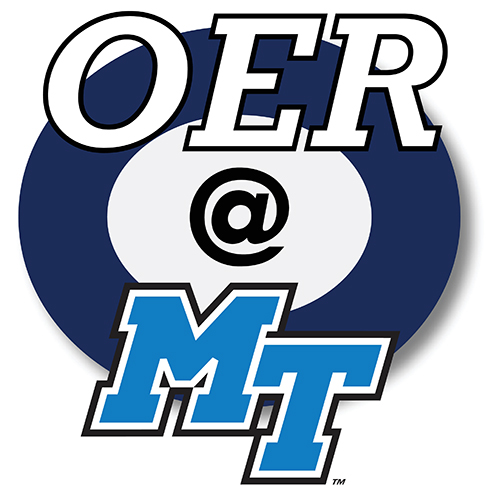MURFREESBORO, Tenn. — Middle Tennessee State University is helping ensure student success with free digital access to scholastic materials through the James E. Walker Library’s Open Educational Resources, or OER, with approximately $1.4 million in textbook savings since the program was implemented in 2021. (Editor’s note: The savings has since grown to at least $2 million since this story first published.)

More than 14,200 students have benefitted from at least one of the 78 OER courses, which have more than quadrupled in number over the past two years, according to data collected since 2022 by the MTSU Office of Institutional Effectiveness, Planning and Research.
“Open Educational Resources provides the opportunity for the library to advance student success on campus as well as academic excellence by ensuring students have information and course materials available to them at low or no cost,” said Kathleen Schmand, dean of James E. Walker Library, where the OER program is headquartered.
College textbooks have nearly doubled in cost over the past decade, with hard-copy versions ranging from $150 to $400 each and annual spending on materials as high as $1,200, according to the nonprofit Education Data Initiative.

“The library is committed to driving down textbook costs. And OER demonstrates the university’s commitment to being equitable, inclusive and student-centered,” said Ginelle Baskin, student success and open education librarian who oversees OER.
Open Educational Resources “are materials for teaching or learning that are either in the public domain or have been released under a license that allows them to be freely used, changed, or shared with others,” according to EdWeek.org. Accessible online, these resources also typically provide downloading options for students who prefer a hard copy of the course materials.
Books a burden on student budgets
A study by the U.S. Public Interest Research Group showed 65% of college students nationwide forgo buying textbooks despite concerns about grades, putting them at a disadvantage.

“Buying textbooks is a burden for all college students, but it is especially difficult for students who are low-income,” said Victoria Grigsby, a Student Government Association senator who worked on legislation defending OER.
Grigsby said 35% of MTSU students use need-based financial aid, making OER a vital asset to the university.
“As MTSU desires its students’ success, it makes sense to implement free resources in classes to remove some of the barriers faced by a large portion of its students,” Grigsby said. “Additionally, as a Blue Elite campus tour guide, I can say that OER is a huge selling point for new applicants to MTSU and their families, who are concerned about the financial impact of their education.”
In 2020, MTSU received a $100,000 grant from the Tennessee Board of Regents to bolster the university’s Open Educational Resources. In 2023, Baskin was tapped to lead the program at Walker Library.
Creating OER from the ground up
OER can replace conventional materials without impacting student performance. In fact, OER has been shown to increase student learning by providing affordable course materials.

Ann Mulhearn, lecturer in the Department of History, adopted OER for her general education American history classes and the feedback has been “overwhelmingly positive.”
“They appreciate the savings, of course. It’s frustrating to have purchased a $100 book and only use two chapters in it,” Mulhearn said. “OER solves that problem — only what is truly needed for the class is included in the class. They can also download the material to their devices and use it offline, which is extremely convenient. That type of flexibility again removes a barrier to full student participation in the learning process.”
Developing OER can be challenging, Baskin said, and one of the biggest hurdles for educators is finding open textbooks for their classes. But that’s where the OER team really shines.

“We can show them where to look and if there is OER, they can adapt it and change it, too,” Baskin said. “It’s neat to see items out there that are valuable and affordable learning materials.”
Earlier this month, the Office of the Provost approved funding for the library to pilot an Affordable Course Materials grant program for faculty to support the adoption and creation of OER classes.
“Paying for college is a challenge for many of our students, so we constantly look for ways to help keep costs down while keeping academic quality high. This is why we’re enthusiastic about open educational resources, which can significantly reduce students’ expenses for course materials,” Provost Mark Byrnes said.
Adapting for student accessibility
OER is also helping reshape how students access necessary resources, especially those with disabilities. In 2023, a multidisciplinary team of faculty participated in workshops to explore how openly licensed educational materials can be key levers for adapting existing resources.

Baskin said the advisory group wanted to expand OERs and learn ways to provide more accessibility to MTSU students — those who are registered with the Disability and Access Center as well as anyone else who could benefit.
“Aside from the cost benefit to individual students, OER also creates equity of access. Digital formats allow for manipulation such as larger font, dyslexic font, read aloud, etc., which removes barriers for many students,” Mulhearn said.
In addition to providing access and assistance to professors, MTSU’s OER website also helps students find courses that use OER by visiting https://mtsu.edu/oer/textbooks.php to find detailed instructions to search for classes that utilize OER.
To learn more about OER, visit https://mtsu.edu/oer/.
— Nancy DeGennaro (Nancy.DeGennaro@mtsu.edu)



COMMENTS ARE OFF THIS POST